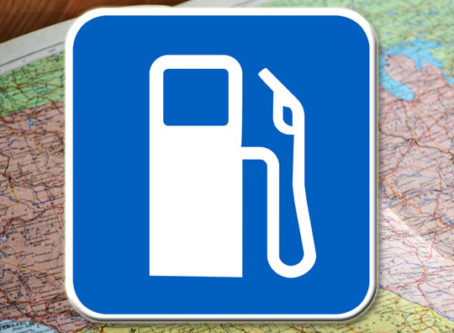Five southern states consider fuel tax increases, other funding options
Transportation funding is expected to be a leading topic for legislators this year at statehouses across the country. Below is a sampling of discussions in southern states.
Alabama
Republican Gov. Kay Ivey announced during her inaugural address she is calling for a fuel tax increase to help meet the state’s funding needs.
The state now collects 18 cents per gallon on gas and 19 cents on diesel fuel. The fuel rates have remained unchanged since 1992.
Discussion leading up to the convening of the 2019 regular session has focused on possibly indexing the state’s excise tax rate. The change to indexing would allow for the fuel tax to rise automatically with the rate of inflation.
Republican leaders have opposed efforts to raise fuel taxes in recent years. Instead, the state has relied on borrowing.
Gov. Ivey says it is time to act.
“If we want to compete in a 21st century global economy, we must improve our infrastructure by investing more in our roads, our bridges and our ports,” Ivey said during her address. “It’s been almost three decades since we made any changes. We’ve got to do it now and get it right.”
The regular session begins March 5.
Kentucky
The pursuit of a fuel tax increase is expected at the state capitol to help address a $1 billion backlog in road paving projects.
The existing gas and diesel rates are tied to the price at the pump. Price dips result in fewer tax dollars charged.
One possibility to help address the issue is the implementation of a flat tax rate.
A failed bipartisan attempt during the 2018 regular session sought to raise the state’s fuel tax rate by a dime to raise $390 million annually. Annual fees would also have been permitted on hybrid and electric vehicles.
Leaders in the GOP-led statehouse say that fuel tax is not the lone solution to address long-term funding needs. Gov. Matt Bevin said that he wants to see lawmakers provide creative ideas.
Louisiana
At least one group in Louisiana has indicated they will call on legislators to raise the state’s 20-cent fuel tax rate.
During the past two regular sessions there have been attempts to raise the rate by as much as 17 cents.
Gov. John Bel Edwards has reportedly said he supports legislative efforts to help the state address a $13 billion backlog for transportation needs.
Other options are expected to be considered in the upcoming regular session.
Department of Transportation and Development Secretary Shawn Wilson said he supports use of public-private partnerships to get road projects done. Doing nothing, he says, could result in the state losing a portion of its $600 million in annual federal highway aid.
Mississippi
During a special session one year ago, state lawmakers approved two bills estimated to raise $200 million for state and local road work.
The funding boost, however, only trimmed in half a projected $400 million shortfall.
In an effort to further shrink the gap, there is a bill introduced for this year’s regular session that would increase the state’s fuel excise tax.
The current tax rate is 18.4 cents. It is unchanged since 1987.
Sponsored by Rep. Robert Johnson, D-Natchez, HB586 would raise the tax rate for gas by 12 cents and the diesel fuel tax rate by 15 cents. The diesel tax rate would also be indexed for regular increases twice annually.
Mississippi Department of Transportation Commissioner Dick Hall is advocating for a fuel tax increase to address infrastructure needs.
A separate bill, HB410, would allow the city of Jackson to impose a 1-cent tax on fuel purchases. Voters would have the final say.
Revenue would be dedicated for local roads, streets and bridges.
The bills await consideration in committee.
South Carolina
Road revenue in South Carolina is on the rise. However, it is not enough to address the state’s overall transportation funding needs.
A 2017 state law increased the then-16.75-cent fuel tax rate. Specifically, the tax rate will increase by 2-cent increments over six years to benefit the state’s roads and bridges.
When fully implemented, the additional 12 cents in tax revenue is estimated to raise $630 million per year.
Officials said at the time of the bill’s passage that something needed to be done to help the state address the estimated $1 billion annually the state Department of Transportation says is necessary to cover infrastructure needs.
In an effort to further reduce the transportation funding gap, a bill introduced for the 2019 regular session would authorize putting toll booths on a portion of Interstate 95. The tax revenue would be used to pay for road widening and repairs.
Sens. Kevin Johnson, D-Clarendon, and Brad Hutto, D-Orangeburg, have introduced a bill to require the state Department of Transportation to charge highway users to access I-95 where it crosses Lake Marion in either Orangeburg County or Clarendon County.
The bill, S178, is in the Senate Transportation Committee.









